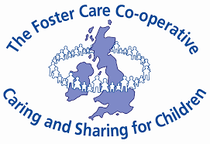 ‘You can be gay, straight, single, married, living together, with or without your own children, from any ethnic background and you can hold any religious belief.’ This is a line directly lifted from The Foster Care Co-operative’s brochure, designed to be read by perspective foster carer applicants. It is an attempt to highlight the need for diverse foster carers – from all sections of society. In reality, it doesn’t even come close to an exhaustive list. So why do FCC need such diverse foster carers? Sure, fostering should be inclusive – with everyone given the chance to become a carer if they satisfy the basic requirements. Apart from anything else, the need is so great for carers to look after an unfortunately high volume of vulnerable children in the care system, that the more doors you can open for people wanting to help, the better. FCC advertise for diverse carers because the children who need a home are equally as diverse. Of course, foster carers have the ability to be flexible with any child in their care. Some adjustments may need to be made within the home to cater for, say, a religious-specific diet. But generally, foster carers are able to adapt, adjust and care for a child no matter what their background or needs may be. And that’s why they are amazing people. Sometimes, however, there is such a specific match required that it demands a certain type of person with specialist experience or a specific skill set. Last year, FCC approved their first deaf foster carer – a teacher of British Sign Language. Local Authorities were contacted, and three months later our carer was able to offer a short-term home to a deaf young person. Due to the outstanding ‘match’, the carer had an excellent understanding of the child’s needs. Consequently, the young person is currently thriving in his foster home and his social worker has commented that the carer offers him ‘good wrap-around care’. The carer has gone on to recommend FCC to another deaf colleague, who has since made an application to become a foster carer. On a different note, one of FCC’s social workers is taking part in ongoing research with the University of Worcester, into breaking down any barriers that disabled people may face when wanting to become foster carers. For this, there are currently challenges to often used phrases such as having to be ‘fit and healthy’ in order to become a carer. Alternative phrasing being considered is ‘Do you have the capacity and stamina to foster?’, with a possible footnote stating that having a disability or health (physical or mental) condition won’t preclude you from becoming a foster carer in itself. There are, however, general fostering regulations that dictate the basic initial fostering requirements. Applicants would still need to have a spare bedroom in their home and be 21 years of age or over. Inclusion isn’t a tick box or a gesture of diversity. At FCC, it’s based on finding the best possible carer-to-child match. That means finding, training and nurturing a diverse range of foster carers. That way, children’s time in the care system can hopefully be the best that it can possibly be. You can read FCC’s Frequently Asked Questions about becoming a foster carer here Source: https://www.fostercarecooperative.co.uk Comments are closed.
|
News & JobsNews stories and job vacancies from our member agencies, the fostering sector and the world of child protection and safeguarding as a whole. Browse Categories
All
|
|
The Fairer Fostering Partnership
c/o TACT Fostering Innovation House PO Box 137 Blyth NE24 9FJ |

 RSS Feed
RSS Feed
